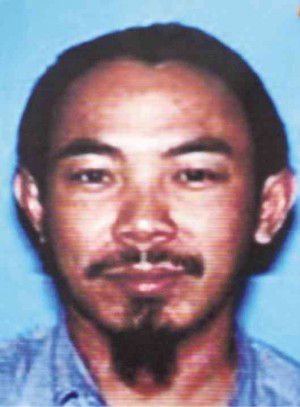ZAMBOANGA CITY—Two operations to get international terrorist Zulkifli bin Hir, alias “Marwan,” in 2012 are being offered by two retired Army generals as examples of a relationship between the police and military that they said is not one of distrust, but rivalry in the war on terror.
The first operation had been launched in February 2012, according to Noel Coballes, retired general and former chief of the Armed Forces’ Western Mindanao Command (Westmincom).
During his term as Westmincom chief, Coballes said the military in February 2012 launched an operation against Marwan and other terrorists—Singaporean Abdullah Ali, alias “Muawiyah,” a Jemaah Islamiyah leader; and Filipino Umbra Jumdail, alias “Doc Abu Pula,” an Abu Sayyaf leader—in the town of Parang, Sulu province.
Muawiyah carried a $50,000 bounty from the US government for his head, while Doc Abu carried a P7.4 million reward raised by the Philippine government.
The military at that time wrongly assumed that the operation had killed Marwan. Neither Muawiyah nor Doc Abu were killed, too.
According to Coballes, contrary to what Getulio Napeñas, the sacked chief of the police Special Action Force (SAF), has been saying in his testimony in Congress, the February 2012 operation against Marwan and the other terrorists in Sulu was not a joint police-military effort.
It was a mainly military campaign, according to Coballes. The military then, he said, dropped bombs on the hut that Marwan, Muawiyah and Doc Abu had been using as a hideout.
After the aerial attack, Coballes said there had been a plan to send ground forces, composed of elite commandos, to the hut but this was dropped “because the place is thickly populated by Moro National Liberation Front (MNLF)” members.
The government and MNLF had signed a peace agreement in 1996.
“If we did not abort deployment, we could have had the same Mamasapano incident,” said Coballes, referring to the slaughter of 44 SAF commandos in the town of Mamasapano in Maguindanao province, following an operation to get Marwan.
Coballes said distrust is the wrong word to describe the relationship between police and military.
In his years of service as a military officer, Coballes said the tension he noticed between the Armed Forces of the Philippines and Philippine National Police was rooted in “bragging rights, professional rivalry.”
“But realities on the ground are very different,” said Coballes.
Unilateral
Another operation against Marwan that could show the rivalry, according to another retired general, had been launched in July 2012.
At that time, according to retired Brig. Gen. Rey Ardo, also former Westmincom chief, the SAF under Napeñas conducted a “unilateral” operation against Marwan in the towns of Butig and Sultan Dumalondong in Lanao del Sur province.
That operation, Ardo said, failed to get Marwan. “They only recovered documents and war materials,” said the former Westmincom chief. “No Marwan,” said Ardo.
Ardo said that had it not been for the intervention of the Joint Coordinating Committees on the Cessation of Hostilities, a body formed to oversee the ceasefire agreement between the government and Moro Islamic Liberation Front, the SAF group that launched the Lanao del Sur operation could have been slaughtered, too.
Ardo said Napeñas apparently failed to learn any lesson from that failed operation. “That kind of operation should have given Napeñas an idea on how to go about with planning and coordination,” Ardo said.
Ardo was more categorical in blaming Napeñas. He said it is only Napeñas saying there is distrust between police and military and “making it appear that the AFP is the bad guy when in all indications he failed to make consistent coordination with his counterparts.”
“It was his (Napeñas) judgment call, he should have applied the risk assessment perimeters,” Ardo added.
Ardo said if there’s distrust, it would be in the intelligence communities that “deal with targets and reward money.”
“There’s jealousy and greed. Sad to note that this Napeñas, he tries to drag everyone (into the fray). It was his execution but he wants others to suffer the consequence,” said Ardo.
“He should be made answerable and accountable for the Mamasapano incident,” he added. Julie S. Alipala, Inquirer Mindanao


